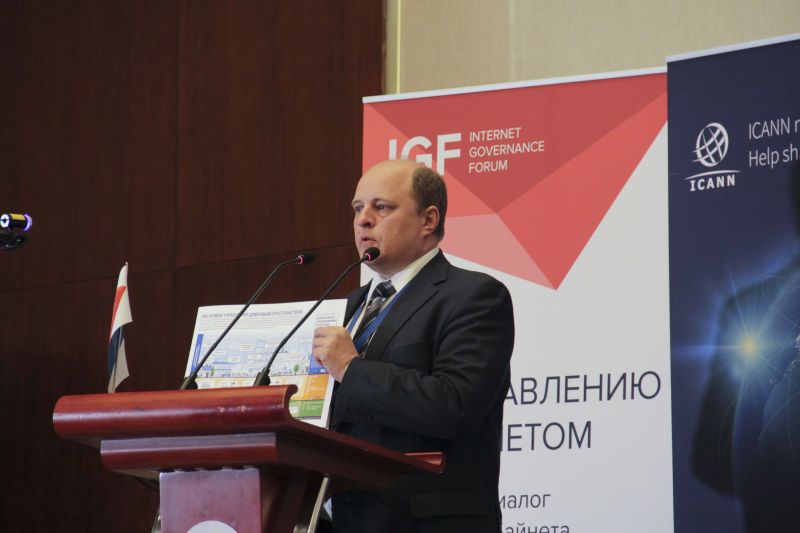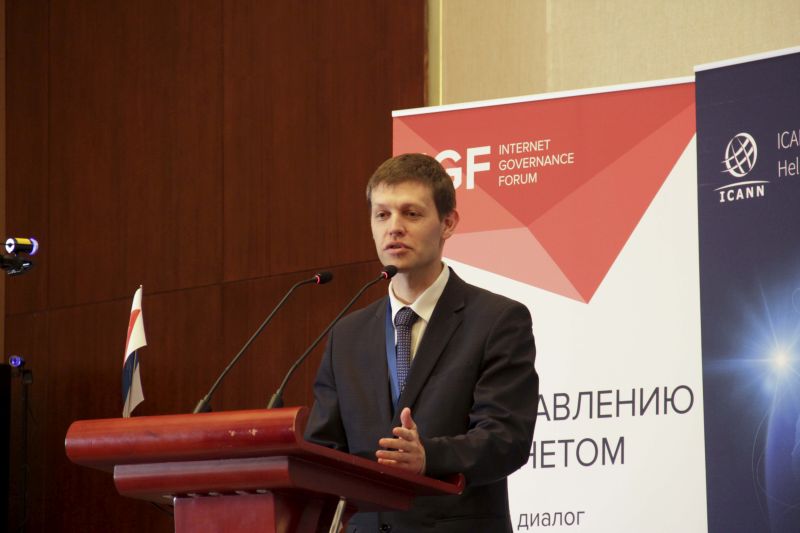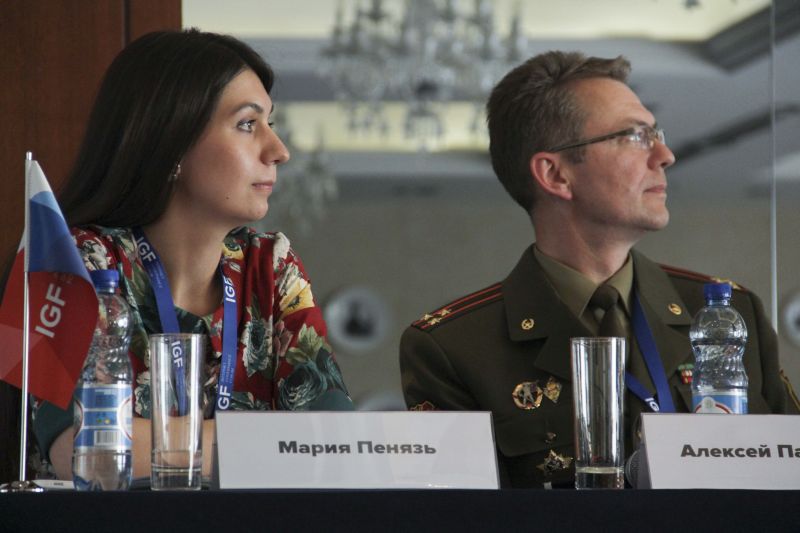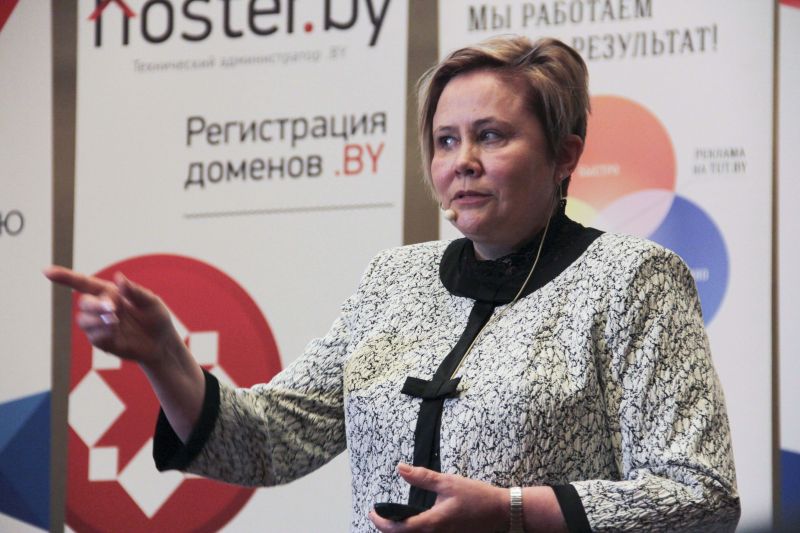Internet Governance Forum Held in Minsk
Internet Governance Forums are taking place all over the wold, under the auspices of the UN. On May 17, IGF was held for the first time in Minsk. The aim of the forum is to enhance partnership of the state, businesses and civil society in solving key issues affecting development of the web.
There were over 300 participants registered from Belarus, Russia, Estonia, Ukraine, Georgia, Moldova and the USA. The organizers of the IGF in Minsk were Hoster.by (technical administrator of Belarusian domain names .BY and .БЕЛ) and the Operative Analytical Center under the auspices of the President of Belarus.
The speakers touched upon a wide range of issues.
For example, Mikhail Yakushev, Vice President of ICANN, spoke of the linguistic side of the development of the web. “One of ICANN’s tasks is to develop multiculturalism and cultural diversity on the web. In our region, it deals with development of domain zones in national languages which allows registration of domains and launch websites without the use of Roman alphabet.” Mikhail Yakushev thinks that Cyrillic domain names and e‑mail names are convenient for those users who don’t know languages based on Roman alphabet. He also emphasized the importance of inventing correct terminology in Russian, as initially the computer language develops in English. He set an example when several definitions in Russian were derived from one and the same notion (like IP-address, web address, web identificator). The speaker called for unification of the IT glossary in Russian.

Dzmitry Shedko, the First Deputy Minister of Communications and Informatization of Belarus, commented on the question of open data and development of an open data portal in Belarus. “The main problem is how state bodies provide data. Official representatives are conservative people. They part with data very hard. We will press on them (to do so). Although, I say honestly it will be a complicated process, a little prolonged in time.

Maria Penyaz, junior employee of the web-resource management of the National Institute of Legal Information (NCPI, website pravo.by and others) had to answer why part of information on the website pravo.by (containing legislative acts, like amendments) are provided for users only on paid-for basis. “The portal accumulates all documents in their initial form. To access a document which has been amended, you need to load another resource – etalon.by. This is a legal consultation system. All the amendments are entered into the system by employees, their work has to be paid. That is why the information published here is paid-for,” she said. The answer surprised the listeners; there was a suggestion to automatize the process and to cut down on expenses.

Mari Pedak, Senior Consultant of the Academy of E‑Governance of Estonia, presented a successful project of e‑governance in Estonia, a country with 1.3 million people. Almost every resident has got a digital identity. The transfer had been prepared since 1992, and different typed of electronic identifications were introduced in 2007. For instance, digital signature saves up to 20 minutes on each transaction. Estimates show that digital signature has already saved around 28 million euro. “For Estonia it is a big figure – around 2 per cent of the GDP. This is the sum allocated for defense. We can say that by introducing the digital signature, we’ve found money for defense,” remarked the expert.

It should be noted that the event was criticized for lack of transparency and openness at the stage of preparation. A group of CSOs sent a petition to the organizers expressing their dissatisfaction with imbalance of representatives in the discussion: speakers in the section “State and the Internet” represented only state organizations; civil society was not represented in the “Business and the Internet” section; and there few commercial organizations and no state organizations in the section “Society and the Internet”. Such organization prevents effective exchange of opinions between all interested parties. The petition underlines that one of the chief tasks of Internet governance should be ensuring online rights as much as they should be ensured offline. The state and other Internet-related actors should encourage human rights, and in the first place freedom of speech, the right to privacy and freedom of associations online. Importance of the topic has to be reflected on agendas of national initiatives on Internet governance. Signers of the petition, among them Andrei Bastunets and Aleh Aheyeu (BAJ), Volha Smalianka (Lawtrend), Aliaxey Kozliuk (expert of Laboratory of Online Freedoms), Kanstantsin Tkachou (Center of Internet Research), Pauliuk Bykouski (media expert), Andrei Paziuk (representative of Partners of Digital Human Rights Defense) and others.
The organizers of the Forum replied that they would take the petition into account when preparing the next forums.
The reply underlines that the “organizational committee fully complies with the requirements of Internet Governance Forums and includes representatives of three sides: the state (OAC), business (limited liabilities organization “Nadzeynyia prahramy” (roughly speaking tut.by) and civil society (Association Belinfocom – association of commercial actors dealing in information and communication technologies).”

 @bajmedia
@bajmedia
